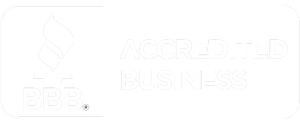Many children who were injured by medical negligence or medical malpractice depend on government programs to help cover their needs. Supplemental Security Income (SSI) and Medicaid are means-tested programs, so beneficiaries’ income and assets must remain below a certain limit in order for the individual to be covered by these programs. So, when a child with special needs receives a personal injury settlement, that influx of cash can cause him or her to lose eligibility for benefits programs. A special needs trust is one way of working around this issue. Money that’s put into a special needs trust does not count towards an individual’s assets or income, so it won’t interfere with a child’s means-tested benefits. But managing a special needs trust isn’t simple. Trustees, meaning the people who manage trusts, can’t just give money directly to the trust’s beneficiary. That would threaten the person’s eligibility for government benefits. Instead, the trustee can spend funds from the trust to purchase a variety of “non-countable resources” – nonessential goods and services that improve the life of the trust’s beneficiary and that the government benefits programs don’t already cover.
Non-countable resources
In order to maintain SSI or Medicaid eligibility, trustees can’t overstep their boundaries. After all, a special needs trust is designed to supplement, but not replace, programs like SSI and Medicaid. Normally, SSI and Medicaid don’t consider non-countable resources when determining a person’s eligibility for benefits. Here are some examples of “non-countable” purchases that can be made using funds from a special needs trust:
- A home. Owning a home shouldn’t compromise an individual’s eligibility for SSI benefits, as long as it can be considered the person’s primary residence.
- Home furnishings and personal belongings. Furniture, decorations, art, appliances and other personal effects are okay. This category is fairly broad, and loosely-defined, so nearly anything that can fit inside a person’s home is probably covered.
- A car. The beneficiary of a special needs trust can own one motor vehicle without threatening SSI benefits, regardless of the vehicle’s value.
- Occupational goals. Plan To Achieve Self-Support (PASS) is a program of the Social Security Administration that allows people receiving SSI to use funds towards achieving educational or work goals – without threatening their benefits. People usually use PASS to pursue a college degree, receive vocational training, or start their own business. Once an individual’s goals are approved by the SSA, the money they spend working toward those goals won’t count in eligibility determinations.
- Essentials for self-support. Purchases for property that will be used in work, either as an employee or as a business owner, are usually allowed. There are, however, limits on the value of these items based on their rate of return.
- Life insurance policies. SSI and Medicaid do not count life insurance policies toward eligibility, as long as those policies have a cash surrender value lower than $1,500. The cash surrender value is how much an insurance company pays the policyholder if the insurance policy is voluntarily terminated before it matures.
- Burial expenses. Special needs trusts can set funds aside to cover the expenses of burial (up to a limit).
So, which resources are counted toward income? A few examples include cash, groceries, and homes that are not the beneficiary’s primary residence. Here’s the list of countable resources for SSI.
There are several ways to fund a special needs trust, including through a structured settlement arrangement. If you are considering this option for your child, there are additional decisions you will need to make. We welcome you to contact Milestone to discuss the possibility of establishing a special needs trust and your other options. We want to ensure you make the best decisions possible for your child, and there is no obligation when you call.


